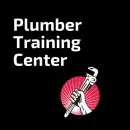Costa Rica has experienced an influx of residents, investors, and tourists over the last decade. If you’re interested in working in Costa Rica as a plumber during this time of growth, you’ll need to tick off a few boxes first.
To become a plumber in Costa Rica, you need the legal right to work, a high school degree or equivalent, and to gain the necessary experience through a work opportunity or a certification course by the National Training Institute of CR.
Do You Need a Plumbing License in Costa Rica?
Costa Rica does not issue or require plumbing licenses. Many plumbers gain experience on the job as an apprentice and soon begin working independently.
Certifications, however, can be acquired and are recommended in Costa Rica. These are given after you complete a course with the National Training Institute – Instituto Nacional de Aprendizaje de Costa Rica (NTI).
Becoming a Plumber in Costa Rica
To become a plumber in CR, you should have legal working rights, finish high school, complete a recommended NTI course, and work under a trained plumber to gain further experience.
- Work Legally in Costa Rica
You will need a residency card (cedula) to study, find work, open a bank account, and complete other legal processes in Costa Rica.
Residency can be granted if you have enough money coming in (from retirement/work/etc.), by being an investor, by having a child in the country, or by getting married to a Costa Rican.
You may apply for residency once in Costa Rica (on a tourist visa) or from your home country. It is recommended that you complete this process with an immigration lawyer.
- Complete High School
Whether you’re in Costa Rica or coming in from elsewhere, you’ll need a high school diploma and/or official transcripts to become a plumber. If your documents are from overseas, you may need to get them legalized and legally translated to be valid in CR.
- Complete an NTI Course
The NTI was created over 50 years ago by the Costa Rican government to promote and develop the training and professional education of men and women working in all sectors. They provide training to people over 15 years old to improve economic-social development in Costa Rica.
NTI has offered various plumbing courses in the past and these are constantly updated. While not required, these courses are highly recommended for those who want to be trained and competent in the plumbing field. Many jobs may require this certification to apply.
The current NTI course, Operator in Plumbing for Communal Water Supply Systems (Operario u operaria en fontaneria para sistemas de acueductos comunales) is 315 hours long. It covers how to carry out the installation and maintenance of communal aqueduct (plumbing) systems according to current CR regulations.
- Gain Work Experience
After completing your NTI course, you will be well-prepared to begin training in the field under an experienced plumber. Hands-on experience is vital when learning a trade like plumbing, so begin applying to reputable plumbing companies to get your career started.


